“Our life is but a game,” sang Herman during the opera The Queen of Spades. Which game exactly? That one everyone should decide for himself.
We at LEDAS love playing games, as is probably the case with most developers around the world. Sometimes we prefer video games; other times, board games that provide the extra special kind of social enjoyment that allows us to develop good relations with teammates and colleagues.
We have a collection of board games in our coffee room and so during that “before pandemic” era we sometimes stayed late in the office playing them.
People have always been curious, searching for answers to many questions. Discovering an answer is emotionally comparable to scoring a goal during a football World Cup finale. Over the decades, mass media took advantage of our curiosity and used it to attract audiences through crosswords puzzles in newspapers, riddles on the radio, and trivia shows in TV. These and other intellectual games never lose their relevance. Nowadays it is hard to imagine watching TV broadcasts in Russia without seeing shows with names like “What? Where? When?”, “Svoya Igra” (a franchise of the “Jeopardy!” game), “The Weakest Link”, and “Brain Ring.”
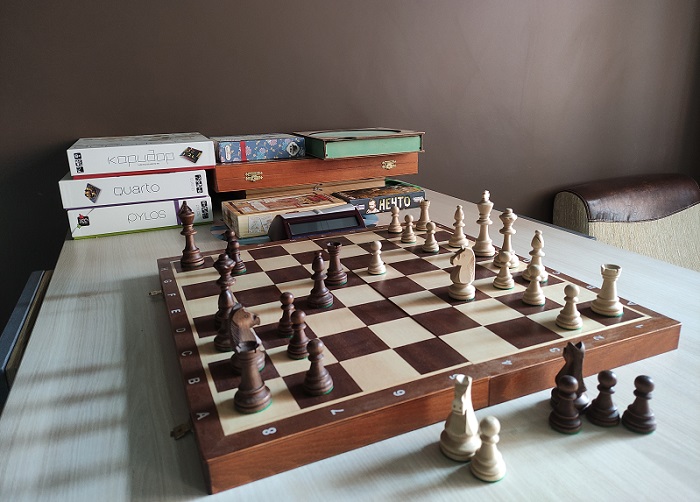
Some games in the LEDAS lunch room
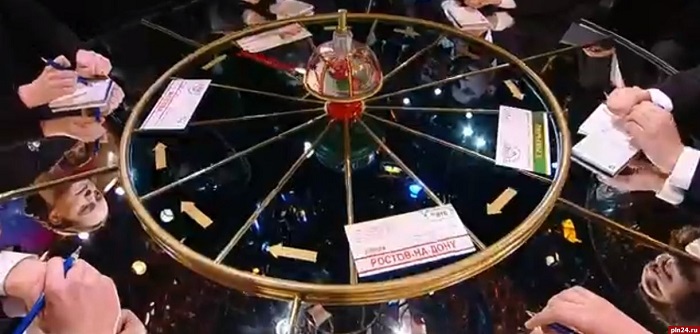
This roulette is used to select a question in “What? Where? When?” TV-show
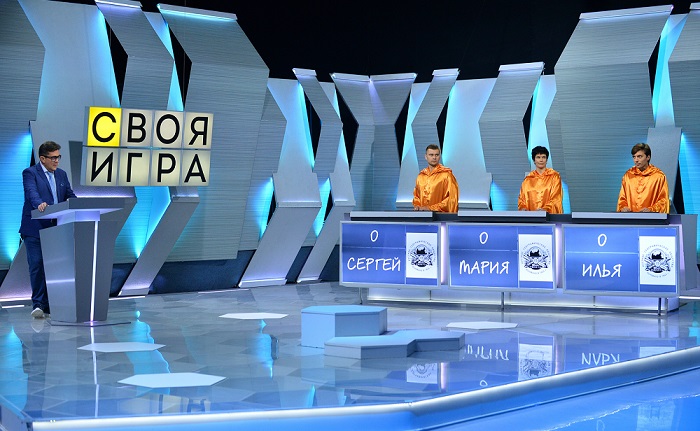
Russian TV version of “Jeopardy!”
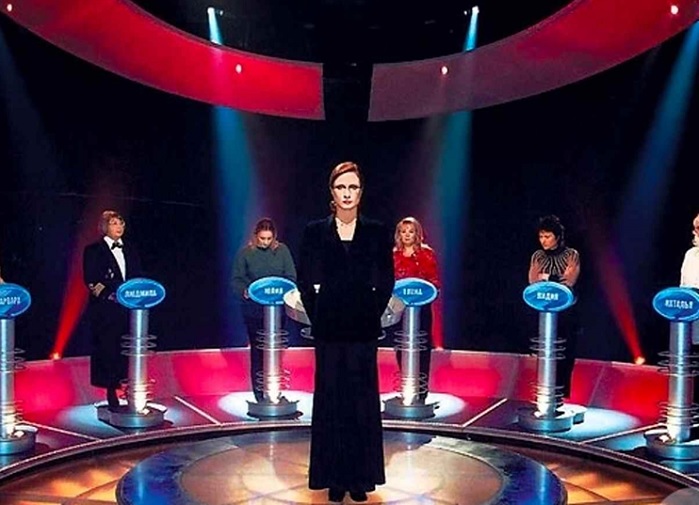
Mariya Kiselyova, host of “The Weakest Link”
Jeopardy!
The pandemic and the resulting remote style of working changed many aspects of our lives. However, social games have found a way to burst through the new barriers to socialization!
Some LEDAS developers are highly involved in the intellectual games movement by watching them online and on TV, and by participating in local contests — even organizing contests themselves.
Resources found on the Internet make preparation of these contests easier. For example, there is a program which provides the interface for holding Jeopardy-style “Svoya Igra” matches locally or online. The organizer needs, however, to compose all the questions for the chosen topic, varying them in difficulty and making it fun to guess at and to determine the answer. This is not as easy as it sounds. It is a huge amount of work, but then the author gains respect from colleagues and the satisfaction from knowing that great entertainment is being provided.
Games like “Svoya Igra” gain special value in our pandemic situation, as they are the better option for something really social. (Playing video games together is certainly an option, but they provide much less socializing.)
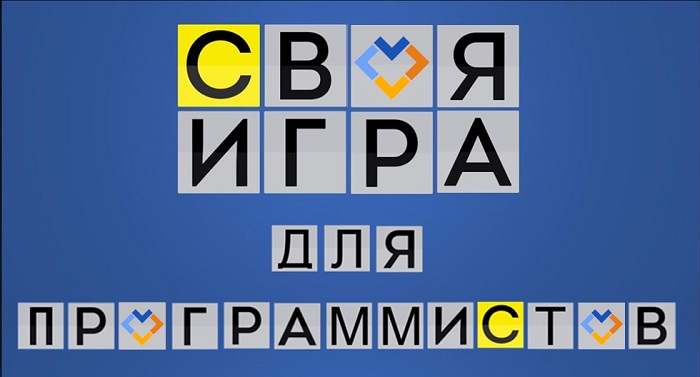
Poster of “Jeopardy!” for programmers
Recently we had a couple of new Jeopardy-style games designed by one of our LEDAS team members, with questions on topics like IT, multimedia, and more. In each game there were three to five contestants. They fought battles of intelligence and speed, as in this game you have to not only know the answer, but also be the quickest to push the button to answer the question.
After one hour, the contestants had answered more than a hundred questions. The questions varied in complexity, value, and topics. The variation in themes allowed contestants and the audience to enjoy the game by learning new things.
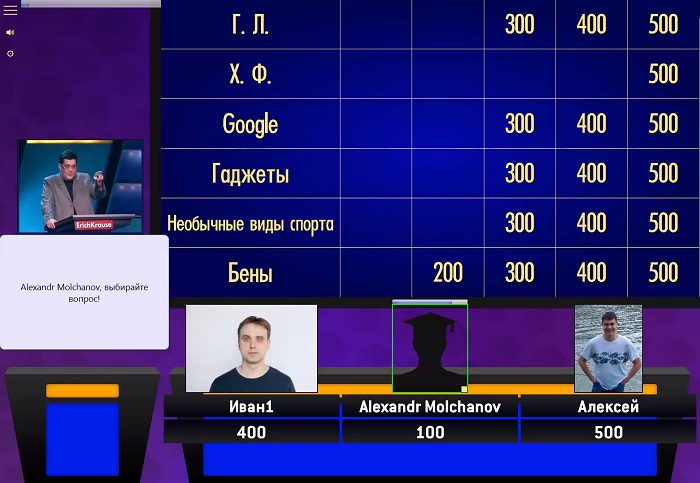
LEDAS version of “Jeopardy!”
What? Where? When?
One of the most popular intellectual games in Russia and other CIS states is named “What? Where? When?”. It was developed between 1975 and 1977 by Vladimir Voroshilov in the USSR. The game quickly became very popular, and a dozen of the best players from the TV version subsequently became household names accorded the same stature as pop music stars: Viktor Sidnev, Nurali Latypov, Alexander Drouz, Fyodor Dvinyatin, Ilya Novikov, and Maxim Potashev, and others.
Contrary to the rules of “Jeopardy?” and most other games, participants in this game do not compete against each other but against the game itself (represented by the game host and his questions). A team of six players has to find the answer to each question in one minute (1.5 minutes in the online format).
Another special feature of this game is that to answer the question, the team doesn’t need to know any specific facts. Questions that can be answered by applying logic and common knowledge are assigned the highest value. After the team has discussed the question for a minute, the captain chooses the player to give the game host the team’s answer.
A distinct feature of this game is the “Black box” — an actual box that is painted black and usually contains an object. That object is the answer to a question. Furthermore, there are special rounds, called Blitz and Super Blitz. To win the Blitz round, the team needs to answer three questions in a minute. It is the same for the Super Blitz round, however here the team chooses one player and only the player can answer the questions in the round.
This makes the game perfect for improving team skills, learning to solve problems together, and to rely on one another.
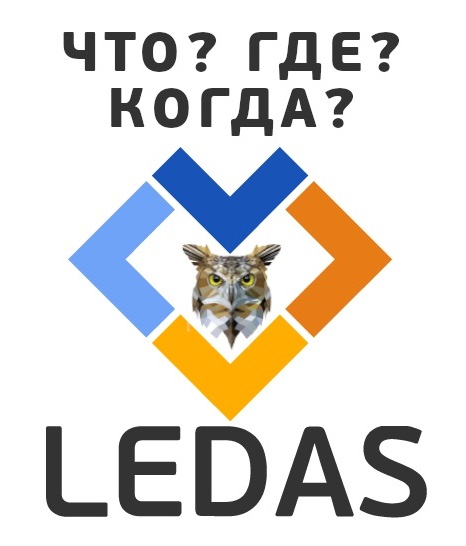
Poster of LEDAS “What? Where? When?” event
We held this game twice recently. Both games were incredibly interesting and intense, full of exciting moments and remarkable insights in the final seconds that are allowed for discussion time. It was exhilarating to observe players’ interactions, the stressful moments of coming up with answers, seeing the excitement when the answer was correct and disappointment otherwise. What’s more, the best players were awarded the symbol of wisdom, owl statuettes.
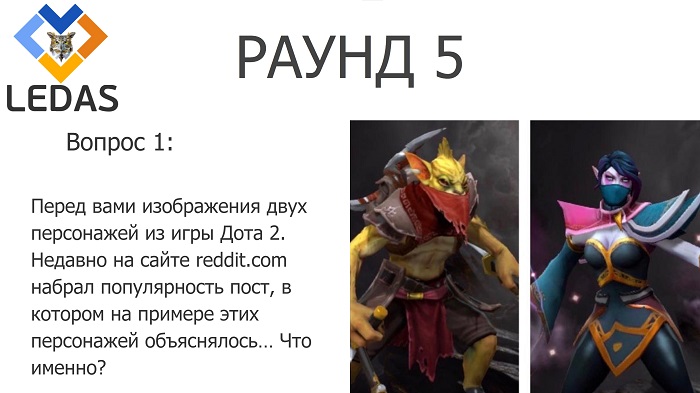
Example of a question
Unfortunately, both times our teams were defeated by the game, although the score was not all that bad. Hopefully, the experience encourages the teams to play again, and this time win.
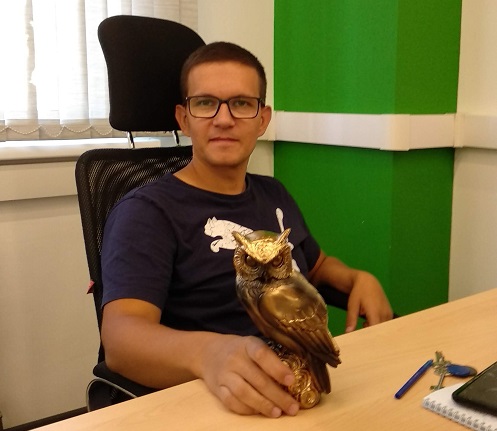
The Best Player with the well-deserved award
We found that holding these events were rewarding for both participants and organizers. Despite the difficulties and restrictions of the past year, we arranged distance work and online leisure activities successfully.
We plan to continue hosting these events and to add other games to keep things interesting. LEDAS highly recommends that everyone join the intellectual gaming community. Let’s play together!